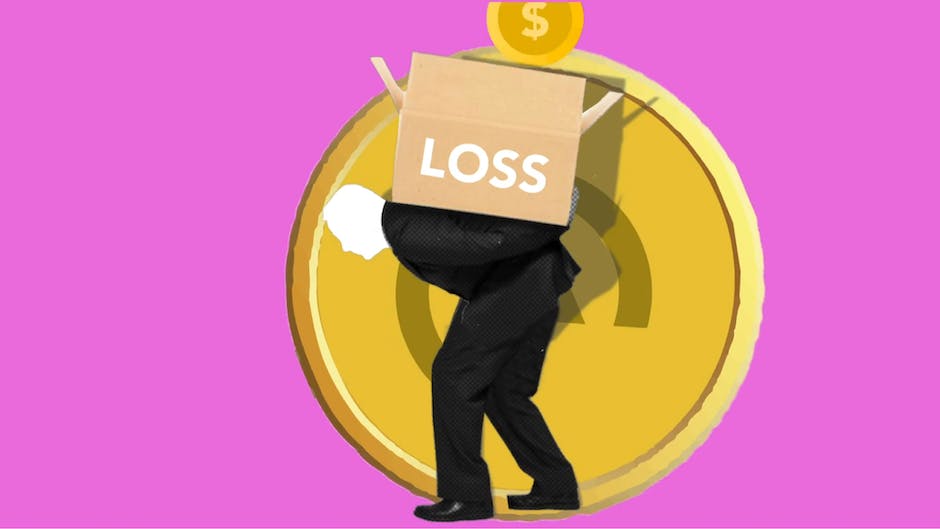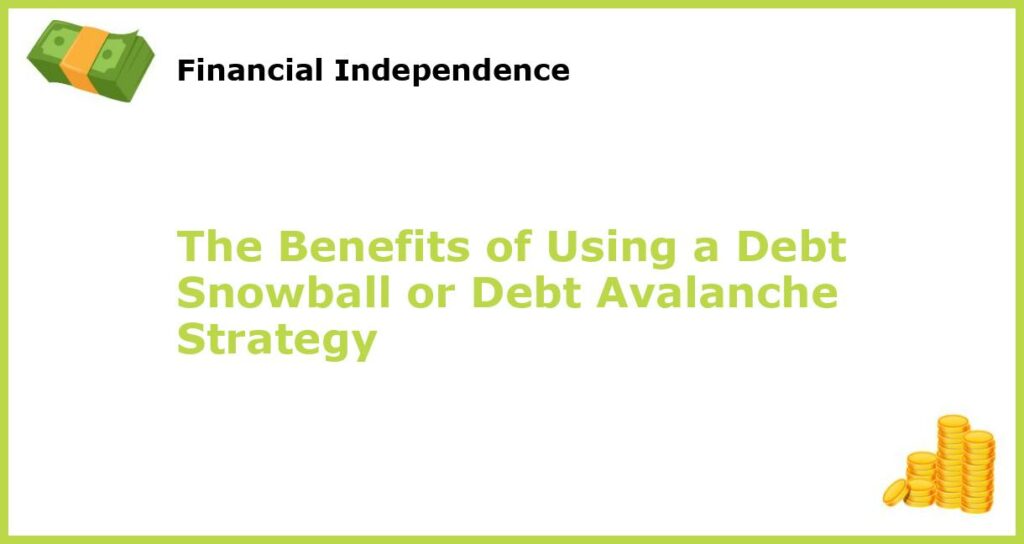Debt Snowball and Debt Avalanche are two strategies that people can use to become debt-free. These methods are both effective if utilized properly, and they offer a range of benefits, from motivating small wins to saving money on interest payments. Expanding each sub-topic of the article can shed light on the particularities of each method and help people make a better-informed decision when it comes to choosing the best debt repayment plan for them.
Understanding Debt Snowball and Debt Avalanche

Reducing debt plays a significant role in improving a person’s financial situation. Debt Snowball and Debt Avalanche are the two most popular strategies that people use to tackle their debts. Debt Snowball involves paying off debts with the smallest balances first and then moving to the next smallest one in sequence.
On the other hand, Debt Avalanche involves paying loans with the highest interest rates first and moving forward from there. Since interest rates can be one of the most significant costs of borrowing money, especially for credit cards, paying off debts with the highest interest can lead to substantial financial savings in the long run.
Both Debt Snowball and Debt Avalanche demand paying the minimums on other debts while focusing on the primary loan they wish to eliminate since ignoring the other debts can severely harm their credit rating.
The Benefits of Debt Snowball

Debt Snowball has several benefits, and one of its most notable advantages is that it encourages people to maintain their momentum by creating a sense of accomplishment. It offers an opportunity to celebrate small wins, keeping them motivated to tackle the larger debts. When a person pays off a debt, regardless of how small it may be, they receive a sense of achievement and realization that they have taken a step closer to being debt-free. The sense of accomplishment helps them stay dedicated to their goals, reducing not only their debt levels but their stress levels too.
How Debt Avalanche Works

Debt Avalanche aims to pay off debts with the highest interest rates at the beginning. This approach is beneficial when managing bank loans, as it reduces the overall amount of interest people pay. Interest rates are a primary driving factor behind the amount a person owes creditors. The faster they pay off high-interest debts, the lower the interest rate charges they will face in the long run..
The Benefits of Debt Avalanche

Debt Avalanche aims to reduce the overall interest payment in the long run while enabling people to budget smartly. Paying off high-interest debts earlier can save borrowers a considerable amount of money over the lifetime of the debt. Since interest rates can add up to thousands of dollars over prolonged periods, using a Debt Avalanche strategy can lead people towards greater savings. Also, once individuals pay off their most expensive loans or types of debts, they can focus on other obligations, which will give them a sense of a long-term financial vacation.
Choosing the Right Strategy for You

When it comes to choosing the right debt reduction strategy, the most crucial factor is personal preference. Debt Snowball and Debt Avalanche both have unique advantages and disadvantages, and they work for different people in different situations. The most effective way to determine which one to use is to evaluate personal goals and financial situations. Sometimes, people may turn to financial experts for guidance, but ideally, they should opt for a strategy that keeps them motivated and gets them out of debt.
Key Steps for a Successful Debt Payoff

Regardless of whether a person prefers Debt Snowball or Debt Avalanche method for repaying their debt, following some key steps is essential for achieving the desired results. Creating a monthly budget is an essential step in reducing expenses and paying off debts. Cutting back on discretionary spending can free up some money to pay off debts. Making a payment plan can help individuals decide which debts to prioritize, and making consistent payments can ensure that they meet their financial goals.
Reducing Your Debt Stress

Living with debt can be a mental burden, and debt reduction can improve and stabilize one’s financial situation. To reduce debt-related stress, people can establish small goals to avoid getting overwhelmed. They can track their progress or make the repayment a competition with a partner or friend to keep them motivated. Reaching out to professionals, counselors, or credit repair agencies could also provide additional support when individuals are struggling to balance their finance and reduce their debts.
The Importance of Financial Education
Developing a long-term view of personal finance and managing it well is critical for achieving financial goals. Understanding the basics of finance, creating a personal budget, and reducing debts by using a suitable method can help people learn how to manage their finances to improve their financial health. Enrolling in a course, talking to financial advisors or attending workshops, and seminars can all help in growing financial literacy and facilitating better decision-making.
Long-Term Benefits of Debt Reduction
Besides the monetary benefits, reducing debt also has a broad range of personal benefits, including reduced stress levels, better credit scores, substantial savings, and greater financial security. It offers an improved financial outlook freeing up income for other areas of life such as investment, savings or improving the quality of life.
Celebrate Your Success
Finally, people should take the time to celebrate their success when they reach their debt-reduction goals. Celebrating can be a personal choice, whether it’s buying something small or treating themselves to something bigger. The key is to acknowledge hard work pays off and show gratitude for staying motivated in a journey that can be challenging but rewarding. Celebrating achievements can help people stay driven and committed to maintaining their financial freedom and monetary stability for years to come.







